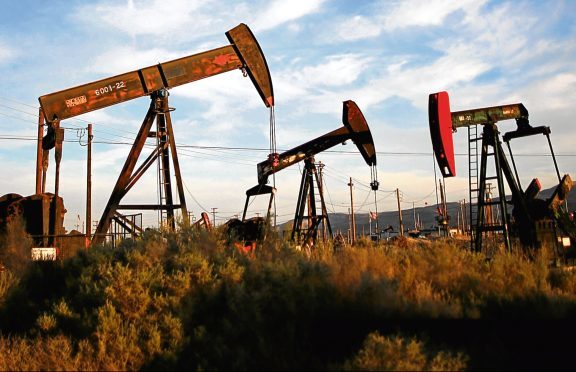You have to take the government to court if you want the truth.
Day one of the legal case against the Scottish Government’s ban on fracking heard that there is no ban on fracking. This admission was not part of smart cross examination but the central plank of the defence.
Advocate James Mure, QC, for the government said: “The concept of an effective ban is a gloss. It is the language of a press statement.”
Which comes as surprise given the First Minister told parliament: “Fracking is banned in Scotland – end of story.”
We have to worry when a government lawyer declares an important policy to be “a press statement” with no substance. No parliamentary question, no reply to a concerned constituent, no submission to a committee established this.
The nation’s democracy is apparently so feeble that when an all-dominant SNP declares something for the purposes of publicity, not a single check in the system is capable of establishing it as a fact or not.
This is government by virtue signalling – saying things to please voters and not acting on them so that, if the wind changes, it can say something else to retain popularity.
Environment minister Paul Wheelhouse already looks weak. Announcing a National Energy Company when he had no details about what it would be, do or achieve was virtue signalling at its most lazy.
Telling parliament there was a ban on fracking, as he did last October, when the government now says there are further consultations needed, appears deceitful.
Honour suggests he should go. Form tells us he won’t. He and his drowning colleague, health minister Shona Robison, will stay because Nicola Sturgeon’s SNP doesn’t do weakness.
Behind this farce lies a serious matter.
The institute of Public Policy Research (IPPR) brought out a report into the merits of the UK having a sovereign wealth fund.
The idea of government saving money for future needs was first used by Pitt the Younger, who created the Sinking Fund in the early 19th Century.
Many nations have these savings, most famously Norway, with a pot now worth a trillion dollars. The usual way to do it is to charge a levy on the extraction of a natural assets and bank the money.
The SNP appears very keen on a sovereign wealth fund. In 2009, the Scottish Government issued a paper on the merits of oil funds in particular, implying Scotland could have one if it were independent.
According to the IPPR report, had a UK fund been set up in the mid-1970s when oil began to come ashore from the North Sea, it might be worth £500 billion now.
The pro-indy newspaper The National reported this as further evidence of British stupidity and a missed opportunity for Scotland.
North-east MSP Gillian Martin told the paper that the UK was broadly useless and urged for powers over oil to come to Holyrood.
“With a steady oil price, the oil and gas sector is once again set on an upward trajectory. The revenues from such a valuable national resource cannot be put towards covering the cost of Tory tax cuts for the very richest in our society – they should be invested wisely for future generations. The best way to ensure that happens it to take these powers out of the hands of Westminster altogether – devolve them to Holyrood and let us properly steward, rather than squander, Scotland’s natural resources.”
Which sounds tough and ambitious, but is drivel when tested against the facts. Since the 1970s, Scotland has been presented with two oil-like energy opportunities. The first is renewables and the second is fracking.
On renewables, we got the virtue signalling – the Saudi Arabia of renewables – but the reality was exposed when the wind turbine plant BiFab in Fife was in jeopardy. Far from grasping the opportunity and using it to build wealth and employment for Scotland, the Scottish share in the renewables industry was miserable, most local companies set up to exploit the wind had since folded and the industry was largely in foreign hands.
The SNP’s abject failure to capitalise on renewables will be the subject of economic tomes in years to come precisely because it was the mid-1970s all over again, because Scotland had the chance to re-run the last four decades but this time better, and blew it.
Now, yet another chance has come around in fracking, and this time the SNP isn’t even pretending it can handle the challenge. We could fund an economic renaissance from fracking and build a sovereign wealth fund, but will do neither. The Nats hate the UK for “squandering” the oil. They must loathe themselves for messing up two chances to correct the mistake.
The excuse for not fracking is that it will burn fossil fuels. But the SNP’s dream of an oil fund floated on carbon emissions. Much as so many Scottish Government policies amount to hot air.





